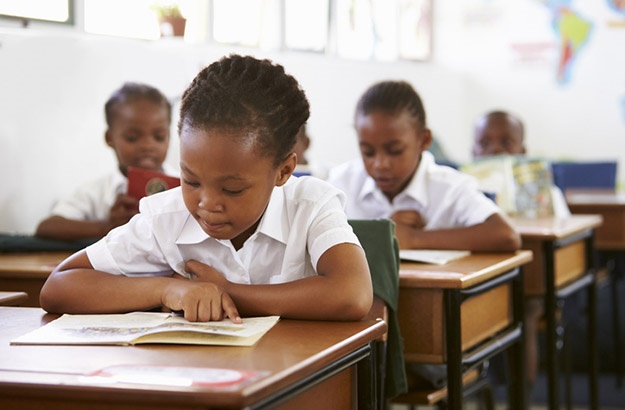
The Department of Basic Education has released a statement following President Cyril Ramaphosa declaring the outbreak of Covid-19 a national state of disaster in terms of the Disaster Management Act.
The President announced a range of extraordinary interventions to curb the spread of the coronavirus outbreak.
Following the announcement the Council of Education Ministers (CEM) urgently convened for a meeting.
The purpose of the meeting was to brief provinces on the outcome of the Cabinet meeting and to discuss with them the practical implications of the President’s announcement.
They shared the reasons behind the Cabinet decision to declare a national state of disaster.
An assessment was done on the current state of affairs regarding Covid-19 and it was felt that drastic steps were needed.
The number of cases have been rising rapidly and it was decided that urgent steps were needed to contain the spread.
Schools in particular have been identified as one of the biggest threats in terms of the transmission.
The drastic step of closing schools has become necessary but it is necessary to ensure that measures are put in place to mitigate the impact.
Also Read: You may need to keep your kids away from playgrounds these school holidays
On the Closing of Schools
In accordance with the pronouncement by the President on 15 March 2020, schools will be closed from 18 March 2020.
Schools should resume on 14 April 2020; unless determined differently.
If that happens it will be communicated to parents.
10 School days will be lost as a result of the school closures.
To compensate for lost days the June holidays will be cut short by a week.
Once opened schools will be encouraged to extend tuition hours.
It must be noted that this directive affects all schools; public ordinary schools, independent schools and private.
The technical aspects of these measures will be addressed by the concerned parties.
Recovery Plans
The CEM meeting agreed on a number of steps that must be taken to ensure that education is not compromised.
Each province, district, circuit and school must have a practical and comprehensive catch-up plan to be implemented.
As things stand right now and based on expert advice the coronavirus is manageable to such an extent that the negative impact on schooling is minimized.
All mass events of more than 100 people scheduled for March and April will be postponed or cancelled with immediate effect. The activities include the South African School Choral Eisteddfod (SASCE), all school sports programmes and of course assemblies.
The Read to Lead campaign will be intensified to ensure that it is used to assist learners and parents alike to get involved in literacy initiatives.
Schools are urged to give learners work they can do at home with the supervision of parents.
Schools are also encouraged to give learners workbooks and worksheets to be used to keep learners active on curriculum based initiatives.
Also Read: Coronavirus | Parents respond as Ramaphosa closes schools
Enrichment programmes
The school enrichment programmes will also be affected by the arrangements.
Guidelines on how the school enrichment programmes are going to be managed will soon be provided to ensure that those in matric in particular are not disadvantaged.
Due to the infection rate everyone needs to work together to contain the transmission of the virus and as a sector we have to play our part together with all our stakeholders.
The department urges South Africans to familiarise themselves with the directives of the Department of Health and NICD.
Follow the directives from the President and the Minister; read the circular and share the content with parents.
- Be vigilant and look out for symptoms of fever (more than 38 degrees Celsius), coughing and shortness of breath.
- Wash hands often with soap and water for at least 20 seconds.
- Use an alcohol-based hand sanitizer if soap and water are not available.
- Practise safe cough etiquette.
- Cough or sneeze into your flexed elbow or into a tissue and immediately dispose of the tissue in a safe place e.g.bin.
- Avoid touching your eyes, nose and mouth as well as handshakes.
- Clean and disinfect frequently touched surfaces, spaces and areas of the school.
- Identify, isolate and report learners, teachers or support staff showing symptoms especially if they have had contact with, or have travelled to highly affected countries as reported by the WHO.
The department appeals to everyone to cooperate and ensure that we put the interest of the children on top of the priority list.
As sector they will encourage their staff to get tested where possible and make sure those that need help receive it.
You can read the full statement as released by the Department of Basic Education here.
Compiled for Parent24 by Anneline Hlangani.
Chat back:
Share your story with us, and we could publish your mail. Anonymous contributions are welcome.
Read more:
Coronavirus: As schools close, are the kids a risk to their grandparents?
PODCAST | ASK A DOCTOR: Vaccinations, and other ways to keep your kids healthy




 Publications
Publications
 Partners
Partners















